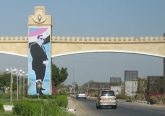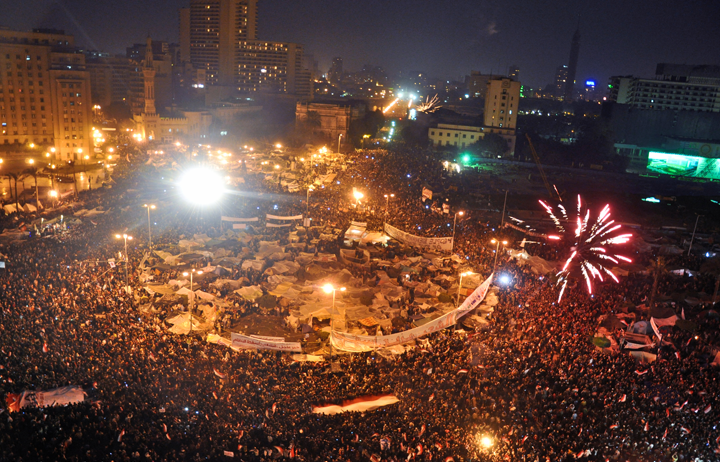
“Our revolution was hijacked,” Mahmoud, a young protestor from Yemen, told me in one of our discussions. “We stand no chance against the established powers in any elections,” said Marwa, another young protestor from Egypt. Mahmoud and Marwa represent millions of similar young Arabs who ignited and led the uprisings in their countries, aspiring for a new future where each one of them will have an equal say in the political process. They are now increasingly disappointed and frustrated with their new reality, and the top reason for their frustration is political finance.
The Deepening Democracy report, published by the Global Commission on Elections, Democracy & Security, highlights that “The rise of uncontrolled political finance threatens to hollow out democracy everywhere in the world, and rob democracy of its unique strengths—political equality, the empowerment of the disenfranchised, and the ability to manage societal conflicts peacefully.” I completely agree with this assessment and was glad to see the issue of political finance strongly incorporated into the findings of the report. In countries like Yemen and Egypt, young democratic forces increasingly find themselves on an uneven playing field. They are competing mainly against two established forces: the ex-regimes members, and the rising Islamist parties and their allies. Both these forces have seemingly unlimited access to finance, whether from wealth accumulated during decades of corruption while in power, from decades of organized fundraising, or from sources in oil-rich countries such as Saudi Arabia, Qatar, and increasingly Iran, who are taking an active role in creating new allies or propping-up old allies in Arab Spring countries by pumping in millions of dollars.
What we have today on the ground are huge unrestricted financial machines, running media empires ranging from multiple TV and radio stations to daily newspapers, and constantly campaigning and buying voter loyalties on the ground with their money. Facing such conditions, citizens of these Arab countries are quickly losing faith in the whole democratic process.
The Deepening Democracy report recommends a number of measures to limit the impact of political finance on the integrity of elections. These measures include increasing transparency, creating an independent monitoring and oversight authority, restricting and limiting private contributions, and controlling campaign expenditures. All of these recommendations rely on strong regulations and institutions that can develop and implement these regulations.
I would challenge that these recommendations are disconnected from the reality on the ground in Arab countries such as Yemen. These generic recommendations assume the existence of capable institutions in the country or the ability to create such institutions. In a country like Yemen, we do not even have a functioning Revenue Authority, so how can we expect to be able to comprehensively monitor and regulate political finance and private contributions to create a transparent and fair system? A study by the World Bank this year shows that less than 5% of adults in Yemen have an account at a formal financial institution, which shows how difficult it would be for any monitoring and oversight authority to trace political finance within Yemen. In general, building capable institutions in Yemen in any field (including political finance) is a long and uncertain process, and if we are not able to freely elect the right people who are committed to building these institutions, then we will continue to spiral in this vicious cycle forever.
I do not yet have the answer to this challenge, but I am certain that relying on regulations and institutions in a country that does not have these pillars will not work. I will continue to work with my colleagues in Yemen to find local solutions to this challenge, but I also call on the collective global wisdom to think of more relevant solutions that match the context of fragile developing countries.
Rafat Al-Akhali is an MPP candidate at the Blavatnik School of Government at the University of Oxford.
This post is part of our Deepening Democracy series, responding to a September 2012 report by the Global Commission on Elections, Democracy and Security, on improving the integrity of elections. The series is being curated by the Blavatnik School of Government and hosted on Politics in Spires. It features contributions from students on the Master of Public Policy course at the Blavatnik School, as well as guest posts from Oxford and Cambridge scholars in politics and international relations.






No Comment